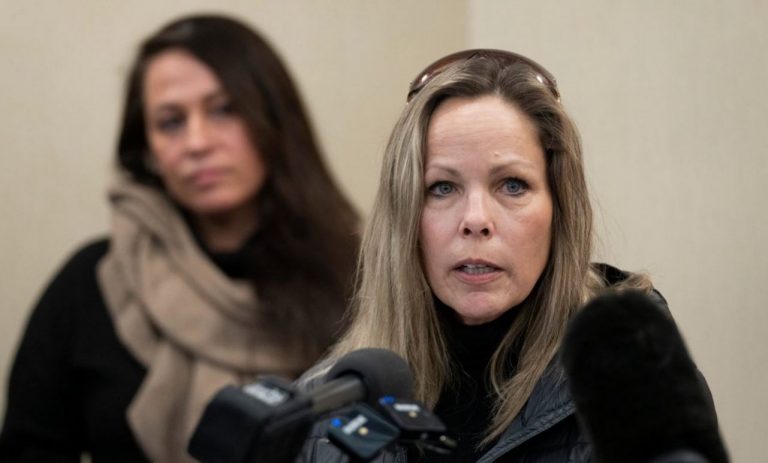On March 7, Tamara Lich, 49, one of the key organizers of the Freedom Convoy protests that rocked Canada’s capital of Ottawa for much of the month of February was granted bail after a judge decided that the previous judge’s ruling to deny Lich bail was wrought with “errors in law.”
Lich had been in custody since Feb. 17.
Court Justice John Johnston ordered Lich’s release after finding that the original judge, Ontario Court Justice Julie Bourgeois, “erred in law” during her decision to deny Lich bail saying that her analysis of the “gravity” of the offenses was incorrect and that the possibility of a lengthy prison sentence for Lich, upon a conviction, was unlikely.
Assistant Crown Attorney Moiz Karimjee had often stated throughout the related proceedings that the Crown was seeking consecutive maximum sentences upon conviction for mischief and counseling to commit mischief, charges that in the worst circumstances could garner someone life in prison.
“I find that it’s not likely that this accused would face a potential lengthy imprisonment,” Johnston ruled Monday. “It’s highly unlikely that this 49-year-old accused, with no prior criminal record, who has a job, would face a penitentiary sentence. It’s unlikely that would happen.”
Success
You are now signed up for our newsletter
Success
Check your email to complete sign up
According to Johnston’s ruling, Bourgeois “did not engage” in a proper analysis and that contributed to the error in law.
However, Johnston found that “Ms. Lich does require a level of supervision if released,” saying that the risk can be “managed” by a new court-appointed surety.
A list of conditions
After being denied bail on two occasions, Lich is now on her way home to Medicine Hat Alberta however, Lich’s freedom comes with a list of conditions.
Lich was required to leave the city of Ottawa within 24 hours following her release and was required to be out of the province of Ontario within 72 hours. Lich was ordered to contact the Ottawa Police Service (OPS) on a daily basis to give updates on her progress home.
The courts rejected an original offer of a $10,000 surety for Lich’s release. Subsequently, Lich was required to submit two bonds, one valued at $20,000 and a second valued at $5000 to secure her freedom.
“Once back in Alberta, Lich must reside at her home address and cannot live anywhere else, except with her court-approved surety. Lich will be forbidden from posting messages, images or even logging onto social media, and cannot allow anyone to post on her behalf,” the Ottawa Citizen reported.
In addition, Lich has been barred from contacting a list of alleged organizers who have not been charged with any offence related to the protests, including Daniel Bulford, Benjamin Dichter, Owen Swiderski, Tom Marazzo and Karrie Komix.
Allegations of judicial bias
Lich’s lawyer, Diane Magas, had filed a court challenge of the earlier decision by Court Justice Julie Bourgeois to deny Lich bail, arguing the judge was biassed. Bourgeois originally denied Lich bail on the grounds that Lich presented a “substantial risk to reoffend.”
Justice Bourgeois was a Liberal candidate in the 2011 Canadian federal election which prompted Lich’s lawyer to file an affidavit on Lich’s behalf that said “had she known Bourgeois was a Liberal candidate in the 2011 federal election, she would have asked the justice to recuse herself from the case,” the Toronto Sun reported.
“Had I had that information beforehand, I would have felt uncomfortable with the situation,” Lich told the court at the time.
Lich’s lawyer, Diane Magas, argued that Bourgeois repeatedly referred to the impact of the protest on “our community” in her decision to deny Lich bail saying “If a justice feels impacted in our community, in her community, in my submission she should not sit. There should be an out of town judge.”


















